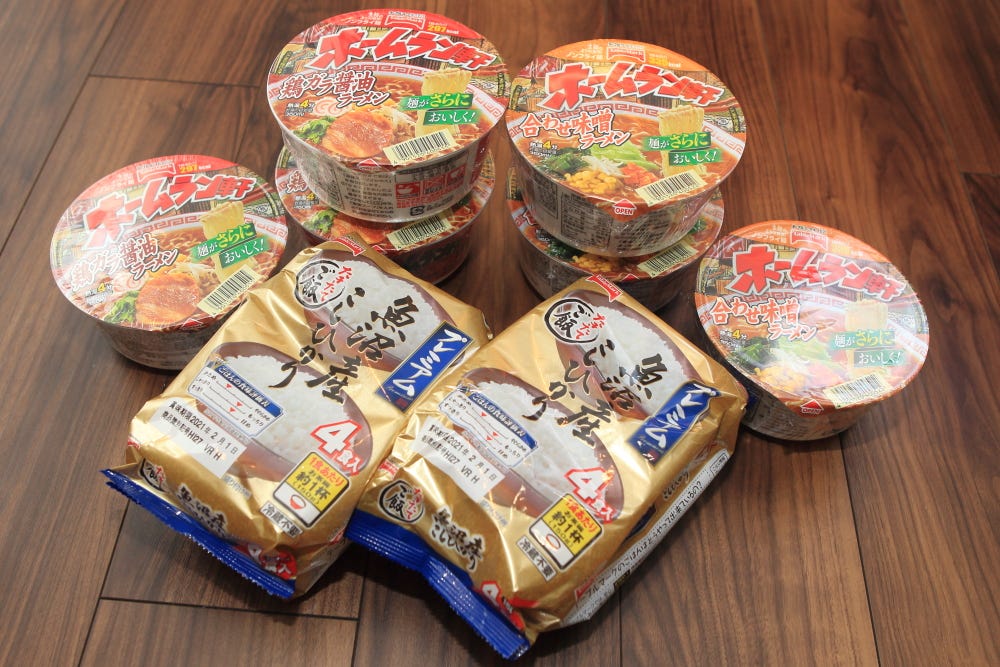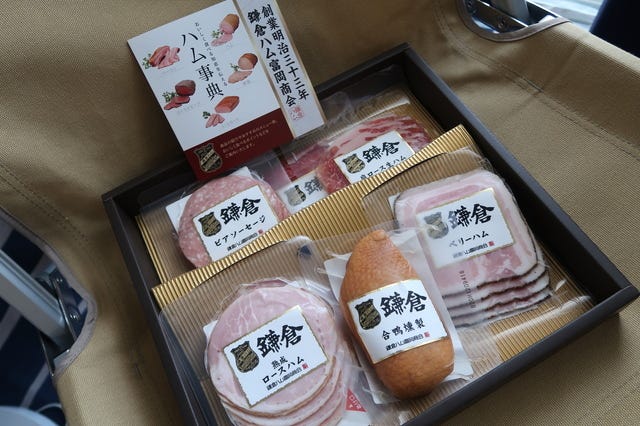In Japan, You Receive Gifts for Owning Stocks
It is a custom called "Kabunushi yūtai" (株主優待) or shareholder benefits, and in this post, I will tell you what they are and how to receive them.
As you might have heard, Japan has a very strong gift-giving culture. In fact, it is customary to bring a gift even when you’re just visiting someone’s home.
This custom has been carried over to the Japanese stock-market. If you own 100 stocks or more of a company, chances are high that you are eligible for a yearly gift.
These gifts are usually connected to the company’s core business, such as discounted airline tickets for owning ANA, or beer coupons for owning Asahi.
However, sometimes the gifts are seemingly random. For example, if you own more than 100 shares of Japan Tobacco, you receive curry, instant noodles, rice and other food items.
How do you Receive Gifts for Owning Japanese Stocks?
There are four main steps to getting shareholder benefits:
1. Open a Japanese brokerage account
If you want to buy shares to receive shareholder gifts, you must first open an account with a securities company.
I have summarized a list of how to open a brokerage account and the best brokerage services here:
2. Find the shareholder gift you want
In order to maximize the fun of shareholder benefits, the most important thing is to find the perfect brand for you.
Here are some ways to choose a Kabunushi Yuutai" (株主優待) or shareholder benefit:
Get rewards that interest you
Choose a stock you can afford to buy
A company with future potential and potential for growth
Of course, it is important whether the benefits are attractive or not, but it is also important to check whether the company has future potential at a price that can be purchased without overdoing it.
I will write a follow-up article on what the best gifts are you can receive from owning Japanese stocks. However, in the meantime, check out this website that ranks the top Kabunushi Yuutai" (株主優待) or shareholder benefits here.
3. Buy the required number of shares by the deadline
Simply owning shares does not necessarily mean that you will receive shareholder gifts, and you need to buy shares by the deadline set by each company.
There are three terms that you should know at a minimum when investing in preferred stocks:
Date of vesting
→ The date when the right to receive shareholder gifts is determined.Last day with shareholder benefit rights
→ Last day when you can get the right to receive shareholder gifts if you buy shares.Ex- rights date
→ If you purchase shares after this date, you will not be entitled to receive shareholder gifts
In other words, if you want to receive shareholder gifts, you need to buy shares by the "last day with rights", which is two business days before the vesting date.
This is basically the same procedure as getting dividend in other countries. If you want to receive a preferential treatment from a company whose vesting date is September 30th (Monday), you should buy shares by September 26th (Thursday), two business days in advance. These dates are often clearly explained on companies’ investor relationship page.
4. Wait for the shareholder gift to be sent
Shareholder benefit products and tickets will be sent to your home at a later date.
However, it is rare that it will be shipped immediately after the rights are confirmed, and in most cases, it will be 2 to 3 months later.
You may be motivated to ask, "When will the shareholder benefits arrive?"
If September is the month when the shareholder gift rights are confirmed, most of the products will be shipped around November or December
Example of Shareholder Gifts
Japan Ham (2282)
For owning 100 stocks, the meat processing company Japan Ham (also called NH Foods) gives you ¥3,000 worth of meat yearly.
Japan McDonald's Holdings (2702)
For owning 100 stocks, Macdonald’s Japan will give you six meal tickets (burgers, side menus, and drinks included) yearly.
ASICS (7936)
For owning 100 stocks, ASICS gives 10 discount coupons that offers a 20% discount on all items at ASICS managed stores.
Three Points to Note Before Going Bananas on Shareholder Gifts
1. Confirm whether the stock is a good investment
Don't make a stock-purchase decisions based solely on the shareholder gift. Instead, do your research of the company and consider whether it is attractive based on your business and financial situation.
However good the shareholder gift is, it will only represent a small benefit relative to the stock-price.
2. Beware that the shareholder gift might be dissolved
Recently, there has been many companies in Japan that has dissolved their gift-giving practices. Do remember that there is no obligation for companies to give shareholder gifts, and they can remove this perk any time they choose.
Therefore, if a gift sound too generous compared to its share price, it might be removed soon.
3. Double-check the required number of shares and number of years of holding
There are often set rules on the number of shares and the number of years you must hold the stock to receive shareholder gifts.
For example, if you invest in a company with a gift certificate as a preferential treatment, the amount you receive may differ depending on the number of shares as shown below.
100 shares or more but less than 500 shares
→ ¥1,000 gift certificate500 shares or more but less than 1,000 shares
→ ¥3,000 gift certificate1,000 shares or more
→ ¥5,000 gift certificate
As a general rule of thumb, always check the company's website before purchasing any stocks to see the latest news and conditions for receiving the gifts you want.
Conclusion
And there you have it! The intriguing, fun, and frankly quite charming world of shareholder gifts in Japan. In a country where gift-giving is deeply ingrained in the culture, it's no surprise that this practice has found its way into the stock market as well. Who wouldn't want a bit of curry with their tobacco stocks or a side of airline tickets with their ANA shares?
However, let's not let the prospect of gifts cloud our investment judgment. Remember, investing in stocks is not a shopping spree, but a financial decision that requires careful consideration. The value of the gift should never outweigh the potential value and growth of the company itself. And as with all good things, these shareholder benefits may not last forever, so keep an eye out for changes in company policies.
In the end, these quirky shareholder gifts can add a little joy to the sometimes sterile world of investing. They remind us that stocks are not just about numbers on a screen but about being part of a company and sharing in its successes... and sometimes, that also means sharing in its curry, beer, and discount coupons.
So, the next time you're considering investing in Japanese stocks, why not add a little spice to your portfolio? But always remember to double-check the fine print and don't let the glitz of the gifts distract you from the real goal: finding valuable, sustainable investments. Happy investing, and may your portfolio be ever bountiful, both in dividends and in delightful surprises!









![アシックス[7936]の株主優待は最大40%OFFの割引券!使い方・使える店舗を解説 アシックス[7936]の株主優待は最大40%OFFの割引券!使い方・使える店舗を解説](https://substackcdn.com/image/fetch/$s_!JUSz!,w_1456,c_limit,f_auto,q_auto:good,fl_progressive:steep/https%3A%2F%2Fbucketeer-e05bbc84-baa3-437e-9518-adb32be77984.s3.amazonaws.com%2Fpublic%2Fimages%2Fc25b44a8-686b-4067-9782-09785adcd79f_1280x720.jpeg)
